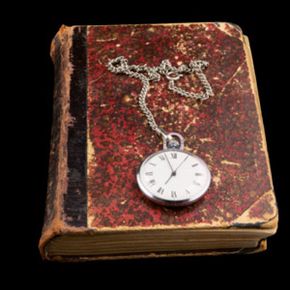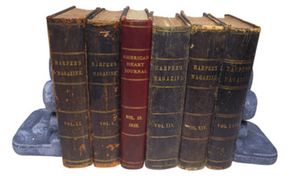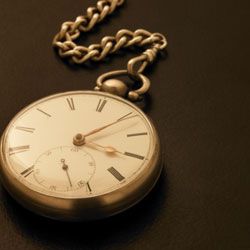Antique books are big business, even in the electronic age. A first edition hardbound copy of J. K. Rowling's "Harry Potter and the Philosopher's Stone" sold at auction at Sotheby's in 2002 for £10,575 ($16,327). Just a decade before, it wasn't exactly flying off the shelves [source: Catch the Snitch].
If you're a reader, or if you just like books, there's money and a treasure trove of historical significance in old tomes, but keeping your old books in good shape can be a challenge. Made from natural materials, like cloth, wood and leather, books are prone to deterioration. They're susceptible to degradation from light, water and dust exposure. They don't like to be crowded either. If you have an antique book, or just want to keep your vintage books looking better longer, these tips will help:
Advertisement
- Environment: Where you keep your books will have a lot to do with how long they'll last. Books need to be out of direct sunlight and away from moisture. They need a stable temperature, ideally between 65 and 70 degrees F (18.3 and 21.1 degrees C), and good air flow to curtail mold growth. A relative humidity (RH) of 44 to 55 percent is ideal to keep them from drying out too much. Keeping your antique books in a basement or attic is a bad idea [source: National Park Service].
- Shelving: If you plan on displaying old or antique books, choose glass or baked enamel shelves over wooden shelving. Wood that hasn't been properly sealed with an epoxy finish can transfer damaging acids to the paper and bindings of old books.
- Spacing: When you're setting up your collection, avoid overcrowding. Books that are crammed together will rub against one another as you remove and replace them, damaging the covers and possibly cracking the spines. Use bookends that will maintain books in a vertical position. Companion books sharing a shelf together should keep one another upright but allow for easy access and good air flow.
- Keep tall books flat: Protect the bindings of large books (18" or higher) by keeping them flat on a stable surface rather than upright. This will also help keep the pages from warping. If you're stacking large books on top of one another, avoid tall piles, and always remove the books on top before accessing the ones underneath.
- Light: Light in general and ultraviolet light in particular can damage old books. To keep printed material vibrant, maintain light levels at a minimum and place ultraviolet filters on windows and fluorescent fixtures.
- Storage: To give antique books the best care, keep them in protective boxes or sleeves made from acid free materials. There are containers on the market designed to store antique books safely, and they work well for maintaining historical documents, too.
- Preservation: Avoid repairing book pages with glue or tape, and don't treat leather bindings with oil. If your book needs repair, consult a professional before trying to fix the problem yourself.
It's also important that you understand what kind of paper your antique book was printed on.
Advertisement




